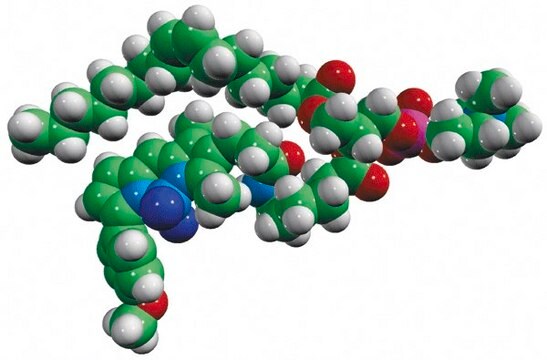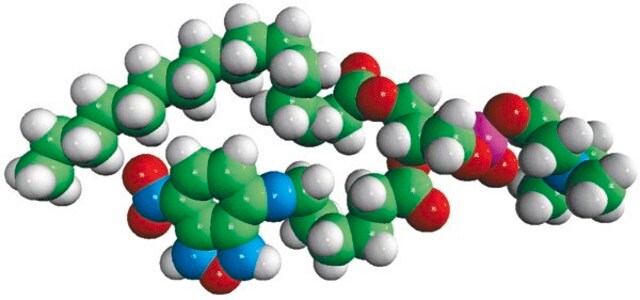810122P
Avanti
14:0-06:0 NBD PC
Avanti Research™ - A Croda Brand 810122P, powder
Synonyme(s) :
1-myristoyl-2-{6-[(7-nitro-2-1,3-benzoxadiazol-4-yl)amino]hexanoyl}-sn-glycero-3-phosphocholine
About This Item
Produits recommandés
Pureté
>99% (TLC)
Forme
powder
Conditionnement
pkg of 1 × 1 mg (810122P-1mg)
pkg of 5 × 1 mg (810122P-5mg)
Fabricant/nom de marque
Avanti Research™ - A Croda Brand 810122P
Conditions d'expédition
dry ice
Température de stockage
−20°C
Description générale
Application
Actions biochimiques/physiologiques
Conditionnement
Informations légales
Code de la classe de stockage
11 - Combustible Solids
Certificats d'analyse (COA)
Recherchez un Certificats d'analyse (COA) en saisissant le numéro de lot du produit. Les numéros de lot figurent sur l'étiquette du produit après les mots "Lot" ou "Batch".
Déjà en possession de ce produit ?
Retrouvez la documentation relative aux produits que vous avez récemment achetés dans la Bibliothèque de documents.
Notre équipe de scientifiques dispose d'une expérience dans tous les secteurs de la recherche, notamment en sciences de la vie, science des matériaux, synthèse chimique, chromatographie, analyse et dans de nombreux autres domaines..
Contacter notre Service technique








